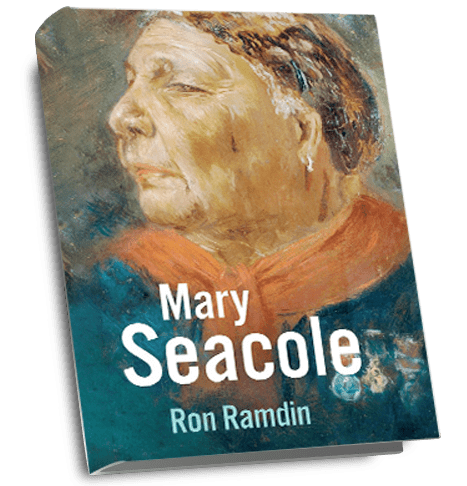
It is four years since the unveiling of the Mary Seacole statue in the grounds of St Thomas’ Hospital, Westminster, London. The first statue of a named black woman anywhere in the UK, a symbol of diversity she strides purposefully (words of sculptor Martin Jennings) towards the establishment. We can draw parallels with Mary’s life today as we fight two viruses which plague our society, CoVID-19 and race inequality. Mary experienced racism but continued to provide care and medicine through the cholera epidemic which claimed many lives, contracting the disease herself in the process. She was bold, fearless, tenacious, compassionate and kind.
I recently commenced my new job as Chief Nurse. At my interview held in November 2019 my organisation sought to make the process fair and transparent with a diverse panel and a number of stake holder events, a master class in fair recruitment. Little did I know that I would be starting my new job in the middle of a global pandemic. On 30 March 2020 I became the 10th Nurse in the country (4%) from a black and ethnic minority background working at an executive nurse position In the National Health Service.
I am not going to go over all the ins and outs of the global pandemic because we see this played out on a daily basis. However this is the biggest test of leaders working in health and social care. So what is it like leading through a national crisis? Firstly, it is mentally and physically demanding. This statement may seem self-indulgent but it is important that I understand and reflect upon my own feelings if I am to lead with compassion. Working in the most challenging rapidly evolving circumstances I experience emotional highs and lows. The complexity of Covid-19 has shined light on the health inequalities highlighted in the recent publication of the Public Health England disparities report which confirmed what we already knew – Covid-19 disproportionately impacts on people who look like me. With the responsibilities weighing heavily our shoulders, as leaders we work to keep both our patients and staff safe. The premature loss of life as a direct result of this pandemic brings with it great sadness in a time when it cannot be expressed or supported through a touch of the arm or a hug or just being present as many people are left to grieve alone in lockdown and isolation. This impact is now magnified following the tragic and unjust circumstances surrounding the death of George Floyd. It exposes the systemic and deep seated race inequalities in the US which also exist here in the UK. Every day I am saddened by the loss of life, many of my colleagues who worked to care for victims of Covid-19 too have become victims themselves, with many coming from Black, Asian and Minority backgrounds.
Leadership in all its forms should reflect those individuals we lead and we know that this is often not the case. As a nurse leader I am visible, listen and convey insight and compassion, it is important that I foster a culture of inclusion and belonging enabling staff to speak up. Diversity of thought comes from those of difference, talking about race engenders feelings of discomfort but leaders from all backgrounds must own this discomfort as we must seek to understand how to tackle the racial inequalities. Saying nothing and doing nothing is not an option. We can no longer be complicit as we see many more die as a direct result of this awful virus.
Racial inequality and discrimination is present in organisations, institutions and society. I wish for the next generation a fair society where their talent and dreams flourish. Only by acknowledgment and willingness to change can we dismantle the balance of power and have any hope of change. We must accept and recognise how little we have moved forward since Mary Seacole graced the earth in the 1800s. Mary, despite her contribution, experienced racism and microaggression as many felt she would have been better to not be of a brown complexion (mixed heritage Jamaican and Scottish). In her memoirs she recalls how she declined an offer to bleach her skin to make her more acceptable. Referring to the offer Mary made it clear that she did not appreciate remarks about her skin colour and would have been just as happy to be darker “and as much respected by those whose respect I value: and as to his offer of bleaching me, I should, even if it were practicable, decline it without any thanks.”
We all need some of Mary’s spirit and pride in who she was, we must never give up and always do the right thing as we lead through this crisis.
– Karen Bonner, Trustee
The Wonderful Adventures of Mrs Seacole in Many Lands (1857) Penguin Classic is available on Amazon here.



